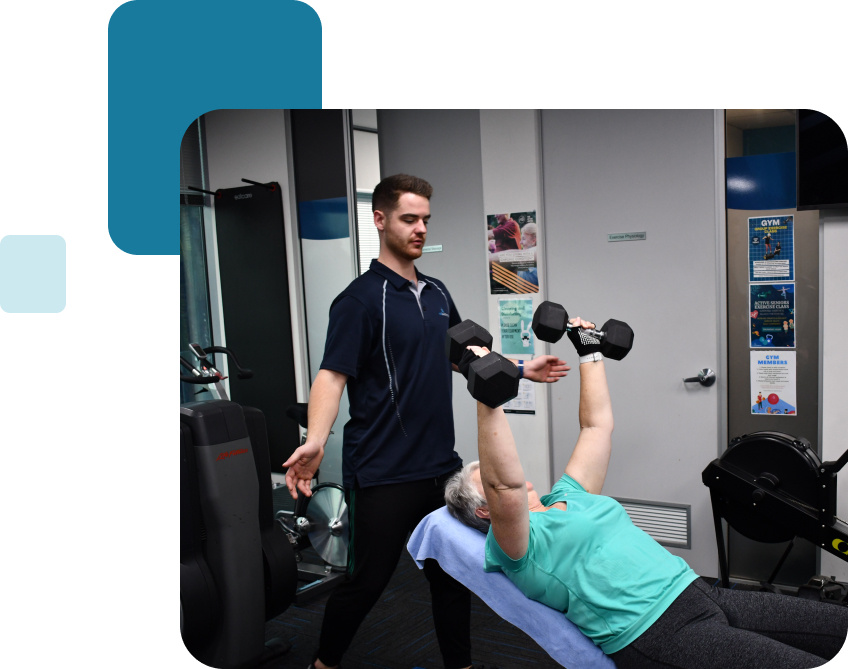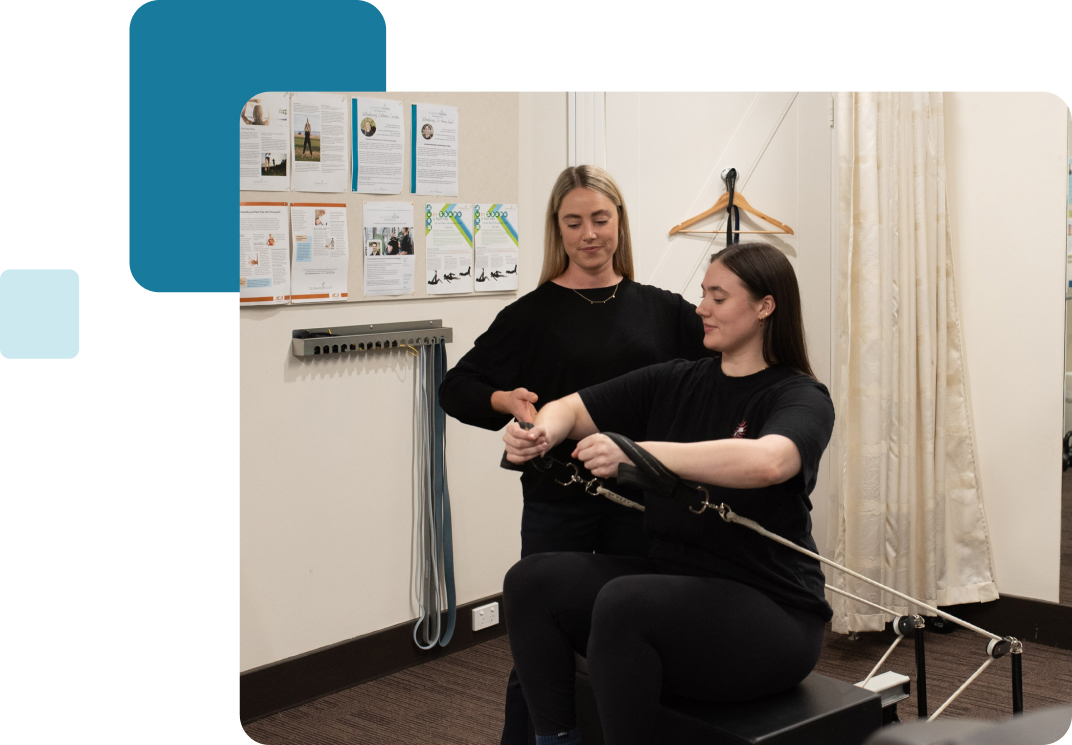99/103 Harris St, Bicton WA 6157, Australia
-1.png)
Cardiovascular disease can affect how you move, exercise, and manage daily activities. Many people with CVD benefit from structured, evidence-based guidance that helps them stay active safely. At WA Health Group, our Accredited Exercise Physiologists (AEPs) provide individualised assessments and exercise programs tailored to your health status and goals.
Our AEPs work with people experiencing a range of cardiovascular conditions, including coronary artery disease, hypertension, heart failure, and post-cardiac rehabilitation needs.
Exercise Physiology may support you with:
Understanding how physical activity affects your heart and overall health
Developing an individualised exercise program based on your capacity and medical history
Building confidence in daily activities and movement
Monitoring your progress and adjusting your program as needed
Learning strategies to manage fatigue, breathlessness, or reduced tolerance to exercise
Your AEP will always consider your medical background, medications, and any recommendations from your GP or specialist.


CVD can benefit from a team-based approach. WA Health Group offers allied health services that may complement your care.
Dietitian – Provides personalised, evidence-based nutrition guidance, including heart-healthy eating, weight management, blood pressure, and cholesterol considerations.
Physiotherapist – Assists with pain, mobility concerns, or returning to daily activities through assessments and safe movement strategies.
Occupational Therapist – Supports daily routines, energy conservation, fatigue management, and functional independence.
Our multidisciplinary team collaborates within professional scopes to support your health needs. If you’re managing cardiovascular disease, we can help you explore appropriate care options.
1. Is exercise safe if I have cardiovascular disease?
Exercise can be safe when appropriately prescribed. An Accredited Exercise Physiologist will assess your health, symptoms, and medical history before recommending any activity.
2. What happens at my first Exercise Physiology appointment?
Your AEP will discuss your medical background, current activity levels, and any symptoms you experience. They may complete relevant physical assessments to help guide your exercise plan.
3. Do I need a referral to see an Exercise Physiologist?
A referral is not required for general appointments, but some funded programs may need one. You can check with your GP or your health fund if you’re unsure.
4. How often should I see an Exercise Physiologist for CVD?
The frequency depends on your condition, goals, and how you respond to the program. Your clinician will discuss an appropriate schedule with you.
5. Can I attend if I’m recovering from a cardiac event or procedure?
Yes, as long as your GP or specialist has confirmed you are safe to participate in exercise. Please bring any relevant medical information to your appointment.
6. What should I bring to my appointment?
Comfortable clothing, a list of medications, relevant medical reports, and any recent test results can help guide your assessment.
7. Do you offer support with lifestyle changes besides exercise?
Yes. Dietitians, physiotherapists, and occupational therapists are available for nutrition guidance, mobility concerns, and daily activity support.
8. Is Exercise Physiology covered by private health insurance or Medicare?
Coverage varies depending on your insurer or Medicare plan. Our team can help you understand your options.
9. How do I know if Exercise Physiology is right for me?
If you have CVD and want guidance on safe physical activity or daily movement, an AEP can assess your needs and help you understand suitable options.
10. How do I book an appointment?
You can book online, by phone, or in person at any WA Health Group location. Our reception team can help you choose the most suitable service.
